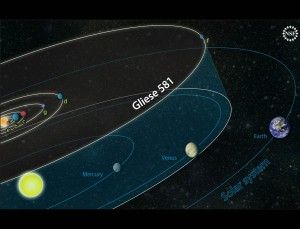Life: Life beyond Earth

It wasn't long ago when astronomers who wanted to search for planets outside our solar system were considered daft. A couple of brave scientists began the search, found what they were looking for, and started a whole new area in astronomy. Hundreds of exoplanets have been identified and those who invest their careers in this search are no longer ridiculed. The search has led to a very respectable and fast-growing new field: astrobiology (sometimes called exobiology).
So what do astrobiologists expect to find and how do they build their models of alien life?
As far as we know, the fundamental ingredients for life are hydrogen, oxygen, nitrogen and carbon, the most common elements in the known universe. Earth life is composed principally of these four, plus sulphur and phosphorus and traces of other elements, for a total of some 26 elements. It is amazing to realize that such a small number of basic ingredients can give rise to such diversity as we find. The other essential for life seems to be water. On Earth, life exists in all climates and conditions where there is water, and in the very few areas where there is absolutely no water there is absolutely no life. Water is abundant in the universe, although more in the form of ice than liquid.
But having the ingredients at hand is not a guarantee that life will emerge. On this planet, life developed from a geological base: the presence of minerals and atmosphere in the right conditions to get life started. And after life got started it remained an integral part of a larger co-evolving geological-atmospheric environment. Catastrophes played an significant role in that environment: huge volcanoes, earthquakes, floods, climate shifts and meteorites all drove evolutionary leaps on Earth. Had the environment been more static, evolution might have stopped with bacteria. Conditions, then, are likely to be as important as ingredients for the formation of life anywhere.
With the right elements and water in the right conditions, the right molecules can at least form. For life as we know it, the basic molecules are amino acids, the tiny building blocks of proteins, which in turn are the stuff of life. Amino acids, including types that are not used for Earth life, have been found in meteorites. Meteorites are very common in our solar system and most likely in alien solar systems.
Astrobiologists do not yet know if there are other chemical alternatives that might produce life forms. Data from space telescopes and mechanical space probes present the enticing possibility of life in very strange conditions in our own solar system: on the two moons of Saturn, Titan and Enceladus, and especially on one of Jupiter's moons, Europa. The search is still on for traces of life on Mars left from billions of years ago when the planet had water and an atmosphere. And beyond our galaxy, newly discovered solar systems are being analyzed. One of the most exciting in this respect is a group of planets closely orbiting a red dwarf star called Gliese. Several of the Gliese's planets may exist in a habitable zone.
Our scientific view is that life requires rather specific conditions to jump-start and maintain the chemical processes leading to life. One such condition is called the "habitable zone," a distance from the parent star that is neither too hot nor too cold to sustain life. But this belief is also bound to be challenged as we investigate remote planets. Life, we now know, thrives here on Earth in conditions of extreme cold, heat and toxicity. Most such examples are bacterial, but some adaptations, especially those of the deep sea hyper vents include complex organisms.
The general expectation is that minimal forms of life --bacteria-- will eventually be found on other planets, but that intelligent life will be much scarcer. In view of the fact that bacteria dominated Earth life for billions of years until multicellular life evolved it seems likely that intelligent life may not evolve elsewhere any faster than it has on Earth. But this does not diminish the importance of the search, especially considering the initial doubts about finding exoplanets.
